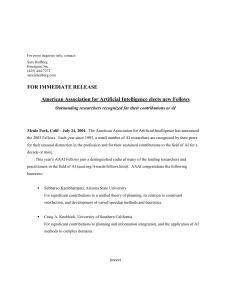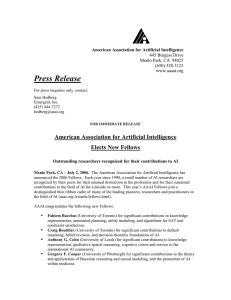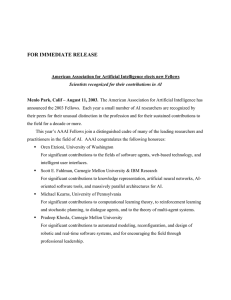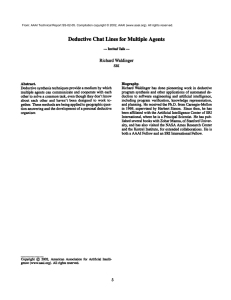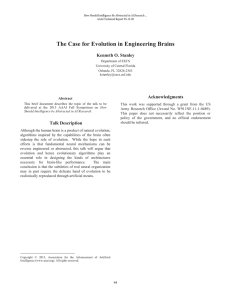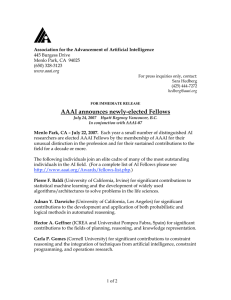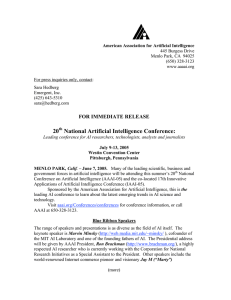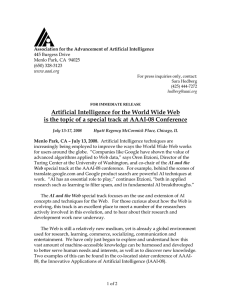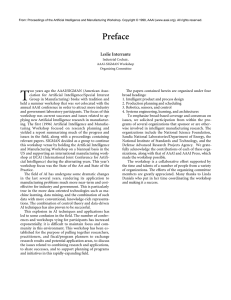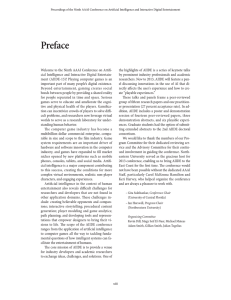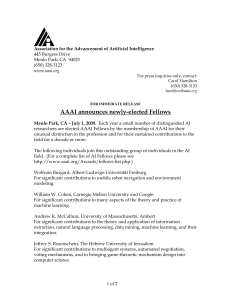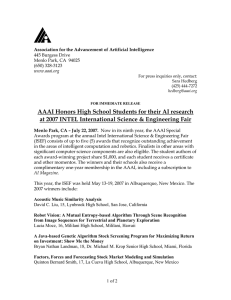American Association for Artificial Intelligence Elects New Fellows
advertisement
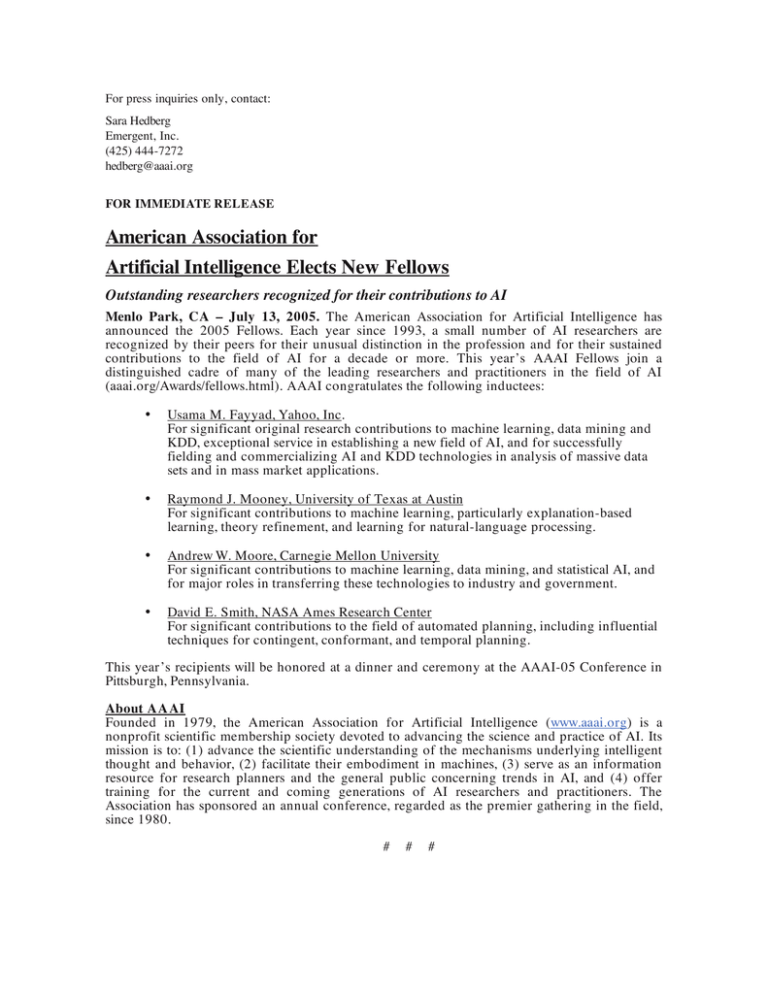
For press inquiries only, contact: Sara Hedberg Emergent, Inc. (425) 444-7272 hedberg@aaai.org FOR IMMEDIATE RELEASE American Association for Artificial Intelligence Elects New Fellows Outstanding researchers recognized for their contributions to AI Menlo Park, CA – July 13, 2005. The American Association for Artificial Intelligence has announced the 2005 Fellows. Each year since 1993, a small number of AI researchers are recognized by their peers for their unusual distinction in the profession and for their sustained contributions to the field of AI for a decade or more. This year’s AAAI Fellows join a distinguished cadre of many of the leading researchers and practitioners in the field of AI (aaai.org/Awards/fellows.html). AAAI congratulates the following inductees: • Usama M. Fayyad, Yahoo, Inc. For significant original research contributions to machine learning, data mining and KDD, exceptional service in establishing a new field of AI, and for successfully fielding and commercializing AI and KDD technologies in analysis of massive data sets and in mass market applications. • Raymond J. Mooney, University of Texas at Austin For significant contributions to machine learning, particularly explanation-based learning, theory refinement, and learning for natural-language processing. • Andrew W. Moore, Carnegie Mellon University For significant contributions to machine learning, data mining, and statistical AI, and for major roles in transferring these technologies to industry and government. • David E. Smith, NASA Ames Research Center For significant contributions to the field of automated planning, including influential techniques for contingent, conformant, and temporal planning. This year’s recipients will be honored at a dinner and ceremony at the AAAI-05 Conference in Pittsburgh, Pennsylvania. About AA AI Founded in 1979, the American Association for Artificial Intelligence (www.aaai.org) is a nonprofit scientific membership society devoted to advancing the science and practice of AI. Its mission is to: (1) advance the scientific understanding of the mechanisms underlying intelligent thought and behavior, (2) facilitate their embodiment in machines, (3) serve as an information resource for research planners and the general public concerning trends in AI, and (4) offer training for the current and coming generations of AI researchers and practitioners. The Association has sponsored an annual conference, regarded as the premier gathering in the field, since 1980. # # #
